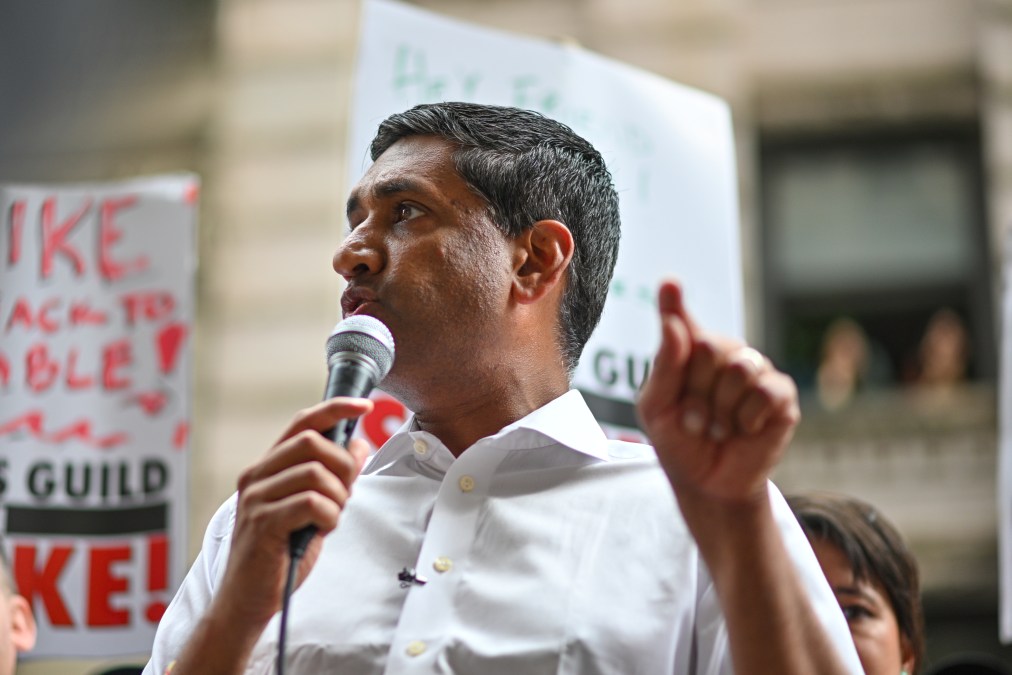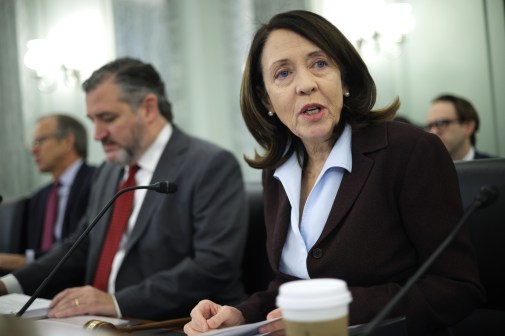Rep. Ro Khanna wants AI wealth to be redistributed and for workers to have greater control over the tech’s deployment

As the use of artificial intelligence rapidly expands across the U.S., a top Democratic lawmaker from Silicon Valley says he wants to ensure that workers within the federal government and the private sector have greater control over the deployment of AI and that the economic growth and opportunities that come from the technology are fairly distributed.
In an exclusive interview with FedScoop, Rep. Ro Khanna, D-Calif., said that he would like to see workers better represented on the boards of AI companies, and ensure that rank-and-file federal employees are sufficiently consulted when AI tools are rolled out within the government.
“My focus has been on economic opportunity,” Khanna said. “What are we going to do for workers who may see their jobs change? What are we going to do to make sure that we’re not introducing technologies in ways that are unsafe or that are too disruptive? And how do we ensure that the wealth that’s been generated, that workers get their share of it?”
When asked specifically how workers could be given more of a seat at the table with regard to AI technology deployment, he pointed to creating legislation that could force AI companies and federal agencies to behave in inclusive ways.
“I want to give worker empowerment through government bills that give workers in the public and private sectors a voice in the adoption of AI technology in their workplace,” Khanna said.
“AI companies have a responsibility to involve workers in any decision of AI implementation,” he added. “You can require it on board of directors, you could require new labor representatives on technology committees [in the government] and elsewhere.”
Khanna, who represents a significant portion of Silicon Valley, said he would like to see more wealth and resources created by AI be redistributed from his district — which includes the headquarters of Apple, Intel and other tech giants — to other parts of the country.
“I think this economic disparity [from AI], it’s going to create much more wealth in Silicon Valley, and large parts of the working class and middle class could fall further behind,” Khanna said.
Khanna also said that one of his top tech priorities in Congress is to bring key federal tech leaders to testify on how to better hold their agencies accountable for delays to critical improvements to government websites and services that millions of Americans use every day.
Khanna, who identifies as a “progressive capitalist,” said that a comprehensive bipartisan bill to regulate and control AI is far from becoming law, but that there is some consensus over the major areas of focus that such legislation is likely to have.
“I think a comprehensive AI bill is going to take probably a year at least, and who knows if it could happen in an election year,” Khanna said.
“It’s going to require a focus on safety, a focus on human decision-making, not machine decision-making, a focus on economic equity, and a focus on fighting against deep fakes and misinformation,” he added.




